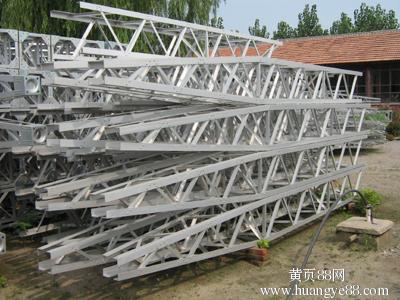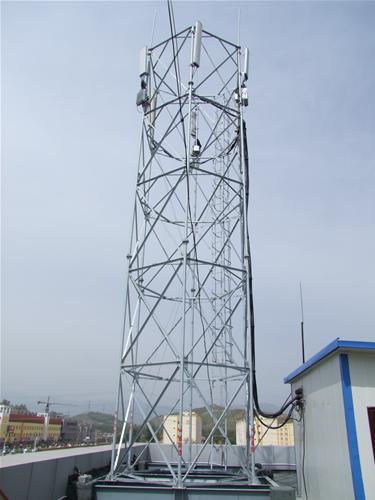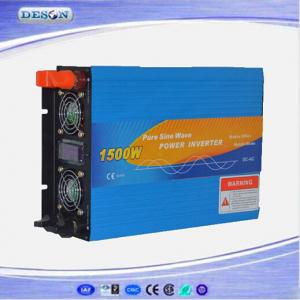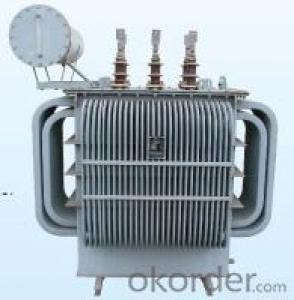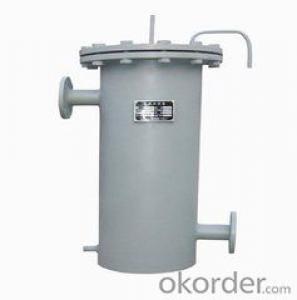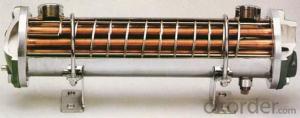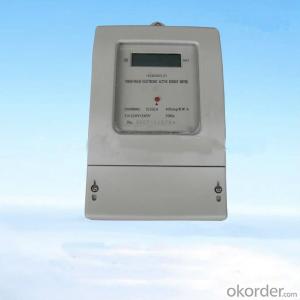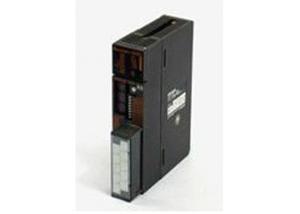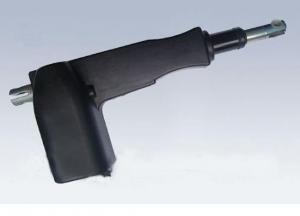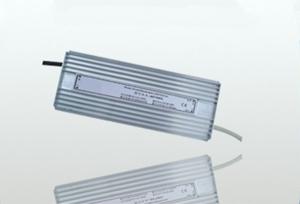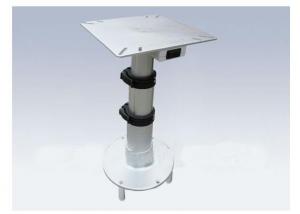Inner gin pole
- Loading Port:
- China Main Port
- Payment Terms:
- TT OR LC
- Min Order Qty:
- -
- Supply Capability:
- -
OKorder Service Pledge
OKorder Financial Service
You Might Also Like
Specifications
Aluminum alloy inner-suspended lattice gin pole
1) Safety factor:2.5;
2) Length:13~32m;
3) Allowable vertical load:2~5 tons;
Aluminum alloy inner-suspended Lattice Gin Pole/ Tower Erection Gin Pole
Application:
It is used to erect pole and tower in the construction of transmission line.
Technical Data :
Model | Length(m) | Cross Section(mm) | Allowable vertical load(KN) | Safety factor(k) | Weight(Kg/m) | ||
HLTB-13 | 13 | 300 | 20 | 2.5 | 12 | ||
HLTB-15 | 15 | 350 | 25 | 2.5 | 14 | ||
HLTB-19 | 19 | 400 | 40 | 2.5 | 16.5 | ||
HLTB-21 | 21 | 500 | 50 | 2.5 | 19 | ||
HLTB-26 | 26 | 500 | 30 | 2.5 | 19 | ||
HLTB-32 | 32 | 600 | 30 | 2.5 | 23 | ||
- Q: Ever since I was a little kid I could tell when there is a T.V on in a house when I walk by. I get this feeling inside like I can sense the signal or something with my brain. When I walk closer to the T.V the feeling gets stronger. If there is a T.V left on in my house with no sound or picture playing, I am still able to sense that the T.V was left on, and pinpoint the exact room its in without even going inside. Does this happen to anyone else?
- Older TV's especially color TV's use a very high voltage, which can make the hair on your arm stand up. It is not too hard to imagine that you are sensitive to this voltage field. Modern LCD TV's do not use high voltage, so you might want to test your senses on a newer LCD TV.
- Q: I am a commercial real estate appraiser and I oftentimes need to be specific about the electrical service available within a building. I can read the service panel(s) and total the various amps volts, but I don't know what is relevant to report. For example, I recently inspected a very large industrial building and all of the service panels combined had a total of 30,000 amp, and I also noted that it had a 3-phase unit. Is that relevant to report that is was 30,000 amp, 3-phase service? Should I also report the voltage? Should it read: 30,000 amp/### volt 3-phase service. In the future, can I just read the service panel(s) and total the numbers? Just because a panel says 4000 amps, does that mean it actually has 4000, or that it can handle that many amps?I know that's allot of questions, but any help that I can get would be helpful. Thanks!
- You would be better off to hire an electrician to get this info as there are a lot of variables. The voltages and phases available, the amps available, and the number of circuits in each one. Many panels you have to remove the cover to see the rating, and this is dangerous. A typical building may have thirty 225 amp 3 ph. lighting panels that are fed off of 60 amp circuits for 277 vac lighting. The service may only be 800 amps for the whole building. This is very common and meets NEC requirements. The largest bldg. where I work at the Univ. is 400k sq ft and has a 4000 amp service at the 480 volt level. This is the same as 145 amps at the 13.2 kv level. It all depends on whether or not you own the high voltage service also. An industrial bldg. could be much more.
- Q: I need this for my class and I just need a site to start off with! Thanks
- (1) Try: MSDS (wikipedia) (2) Also try: Electrical equipment in hazardous areas (wikipedia) It may depend on which country you live in. References and external links for (1) and (2) above are included.
- Q: I'd like to know what's the difference between the two in terms of what they study about, what projects/equipment they do and also if they have similarities. Thanks! :)
- Most schools post ther curriculum online. Look at the website of the school you wish to attend and look at the two curricula.
- Q: Do you find batteries die faster than they should, light bulbs flicker or go out too quickly, electrical equipment does werid stuff or dies sooner than it should. I've had some weird experiences with the computer and one small printer ar work. Also, I had a period where remote controled TV's would go on by themselves. I don't have that problem now, though.
- there is alot that god will do to help people belive somthing if thats truely what they want to blive i belive if a shirital being is still omn earth other than Gods angles that will never give people supernatual powers i think thant evel can give others pwoers to tell the fucture to do the imposible suck as wich craft God said he would not saport wich craft becousr the evel ones are the ones that give the flesh the powers anf if you belive you have the powers tp do somting enough i think sata will give it to you in away that gives you power that you belive is your own ang will drive you away from God im sorry if you dont belive in God i dont want to push ant thing on to you eather way this it just my beliefe and if the electriity in ones body is chaneled difrent then other its eather that or couse were created difrent then others and its afact every one has a eletric charch that keeps them alive ive never exped this but i belive some have i cant say waether its a gift from satan or how God created you mabe somthing you were exposed to or a defect in the geans when you were born mabe a posative afevct and mabe taking in the eletricity is what keeps some one alive becouse the produce normaly less charge than there body needs its somthin that one day will be studied as it becomes more comon as all thing do or they just die out like spontanios cumbustion did eather so rare it is not studird or just a mith or somthing that is of the past this is just an opinion i have never herd of this but i do know that eletricity is a major part of hat amd mind function and existed sence the begining of the earth and space and was not nvented but descovered i hope this helped feel free to contact me id love to talk futher and here about you experinces thank you and have a nice day
- Q: I sold a small bit of electrical equipment to a guy in Norway - I'm in the UK.Item became faulty after a month - I said I would refund him but I had spent the cash already and couldn't repay him back in one go. Item was returned.He agreed that I could pay it up ?899 over 4 years as I'm just a student and not working full time. It was sent in his currency and ?899Trouble is he is now claiming I've not just to pay ?899 back but the amount is to be much more in GBP's as the pound as got weaker against his currency although he stated he wouldn't add any interest on. Any advice?
- Well it isn't your fault that the currency is more or less. Do you have anything in writing? You may want to check what laws are on the books but he can't just change the price on you
- Q: do mechanical engineers also get involved with electronics?
- Engineering is usually a team sport. The mechanical engineer consults with the electrical engineer for the development of the product, then it gets reviewed for approval by the principal engineer.
- Q: Hi. I have bought a kiln from Germany which is compatible with our electrical currents here in the UK - that much I know. It is a small kiln and can be used with just ordinary household electric. However, the electric lead is much thicker than the ordinary leads on my other electrical equipment. Is this just for added safety or what? I want to cut off the German plug and put on an English plug so I need to be sure this is ok. Help from a qualified electrician would be preferable if possible please. Thanks so much.
- The heavier wire is to prevent overheating. Cut off plug and wire as normal. Live to the right, Neutral to the left and Earth to the front pin. Luck.
- Q: HiCan someone tell me what the difference is betweena) turning my TV (or whatever) off on the setb) turning it off at the switch on the wallc) unplugging itWhat I'm reading seems to suggest that only unplugging it really means its off - is that true?
- When you turn off modern Tvs from the remote, it will go to standby mode, there's still electricity on the circuit enough for the memory to remember your settings, like volume, time, the channel you've last watch before turning it off. When you turn off the switch from the wall or unplugging it, the Tv is now completely disconnected from the power source. You may loose personal settings, and when you plug it back on then it may function in the default settings. Leaving it plugged has advantages but surge, lighting, sudden voltage changes may damage it. So when you'll be out for days then unplug it from the AC outlet to play safe.
- Q: I am planning to buy a big guitar amp from america and you dont want to mess around with something as powerful as that so i want to know is there suitable adapters out there for such a job? because i heard that some electrical equipment from America will eventually burn out if you use it in Ireland!!help!?!?!
- As long as you get a proper adapter that can handle the load, you should be fine
Send your message to us
Inner gin pole
- Loading Port:
- China Main Port
- Payment Terms:
- TT OR LC
- Min Order Qty:
- -
- Supply Capability:
- -
OKorder Service Pledge
OKorder Financial Service
Similar products
Hot products
Hot Searches
Related keywords




